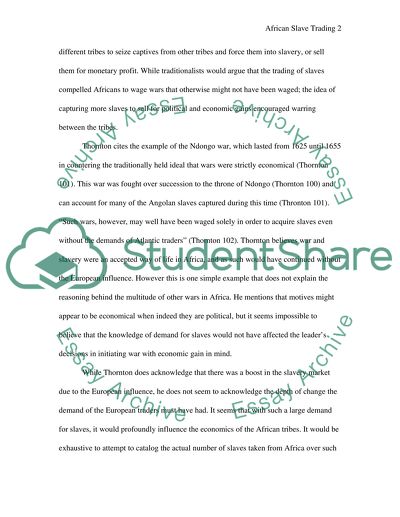Cite this document
(“The Impact of African Slave Trading Essay Example | Topics and Well Written Essays - 1250 words”, n.d.)
The Impact of African Slave Trading Essay Example | Topics and Well Written Essays - 1250 words. Retrieved from https://studentshare.org/history/1552938-transatlantic-slave-trade-1400-1800
The Impact of African Slave Trading Essay Example | Topics and Well Written Essays - 1250 words. Retrieved from https://studentshare.org/history/1552938-transatlantic-slave-trade-1400-1800
(The Impact of African Slave Trading Essay Example | Topics and Well Written Essays - 1250 Words)
The Impact of African Slave Trading Essay Example | Topics and Well Written Essays - 1250 Words. https://studentshare.org/history/1552938-transatlantic-slave-trade-1400-1800.
The Impact of African Slave Trading Essay Example | Topics and Well Written Essays - 1250 Words. https://studentshare.org/history/1552938-transatlantic-slave-trade-1400-1800.
“The Impact of African Slave Trading Essay Example | Topics and Well Written Essays - 1250 Words”, n.d. https://studentshare.org/history/1552938-transatlantic-slave-trade-1400-1800.


